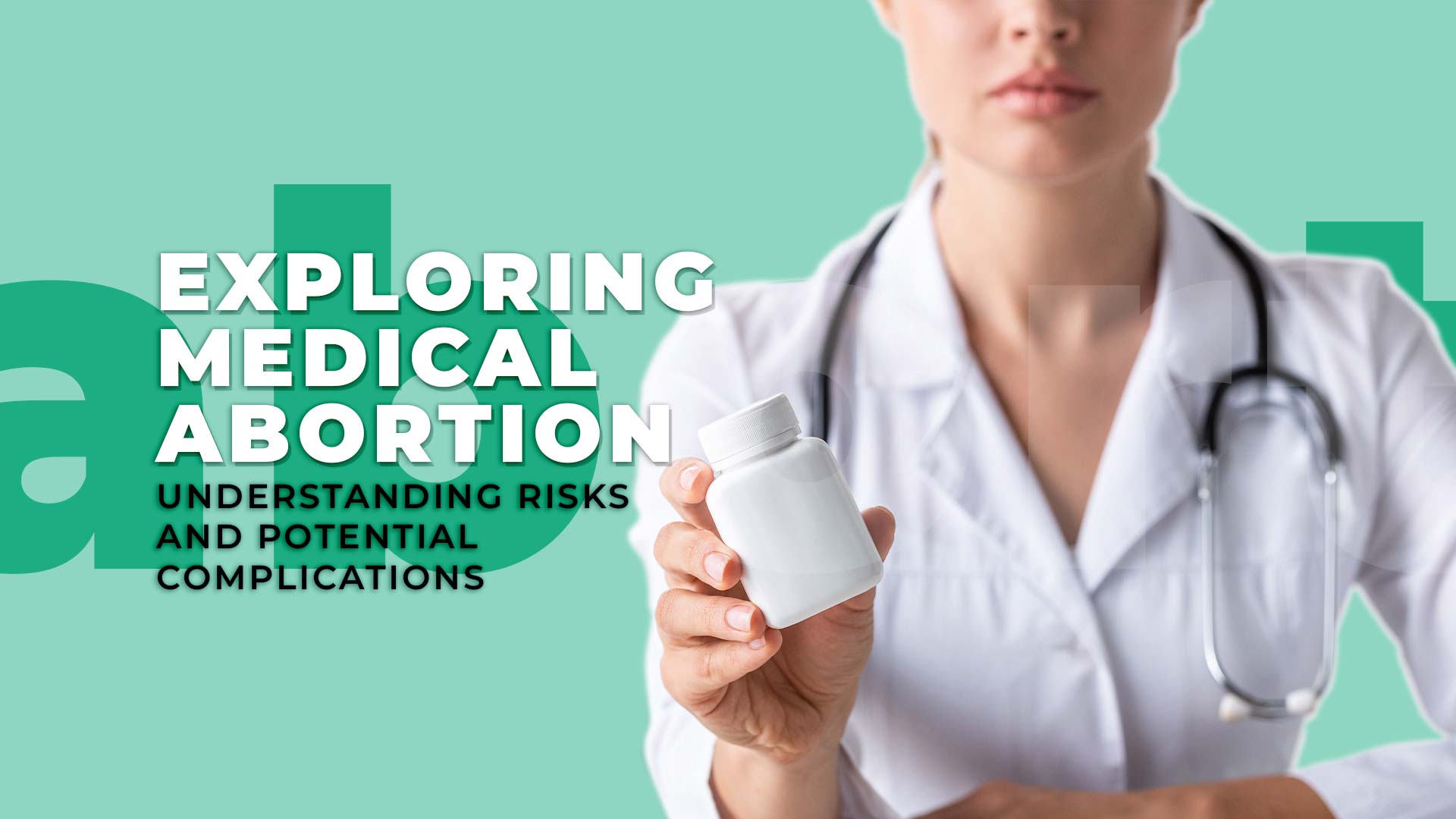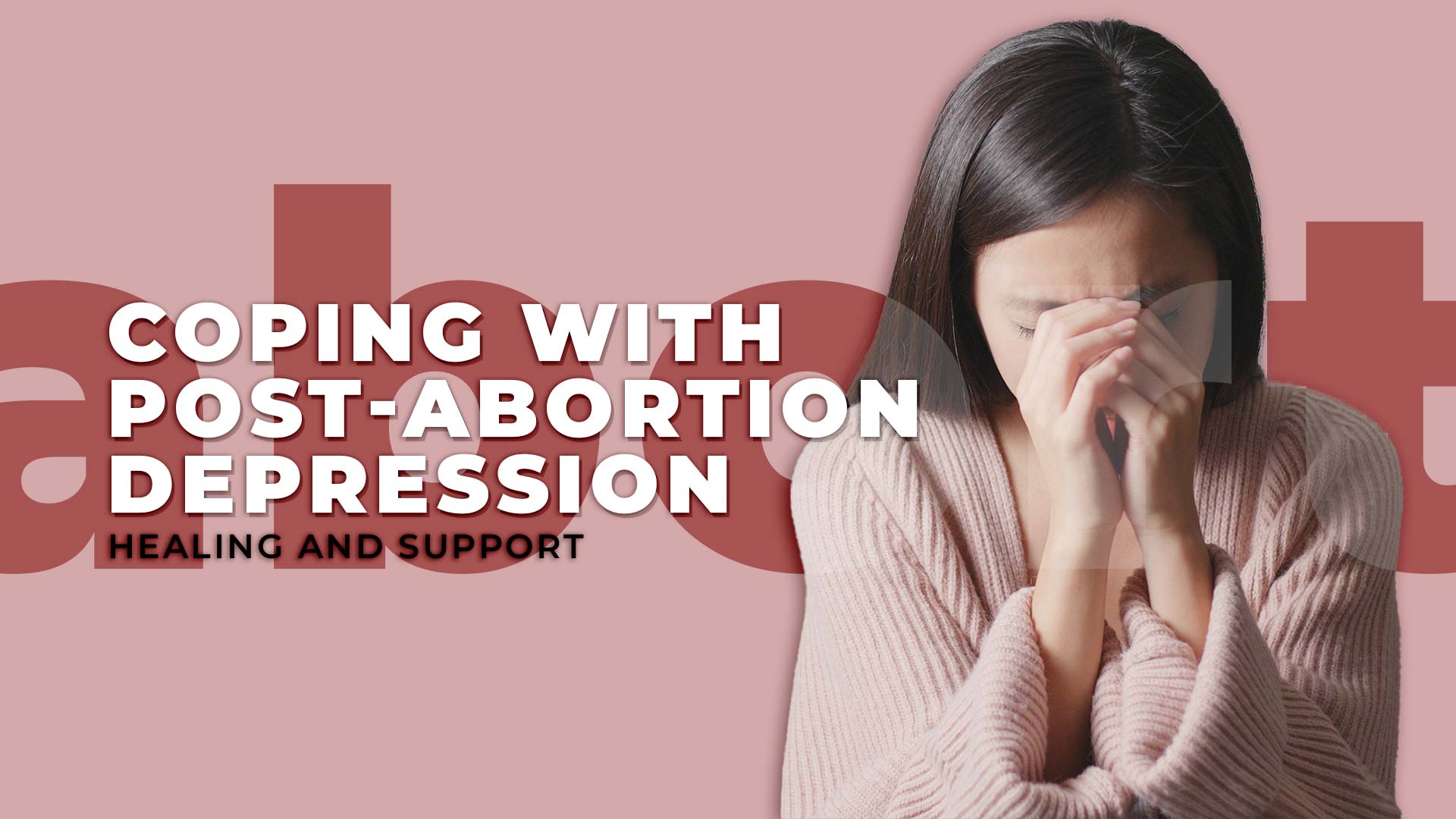An unplanned pregnancy can be overwhelming and cause feelings of fear and isolation for many women. If pregnancy was not part of your plan and you are contemplating a medical abortion, consider the potential side effects and explore all of your options. By making an informed decision based on facts rather than fear, you can empower yourself to choose what is best for you.
Medical abortion, including the use of the MTP (Medical Termination of Pregnancy) Kit, is a non-surgical method employed to terminate an early pregnancy. The MTP Kit typically contains two medications, mifepristone, and misoprostol, and is administered under the guidance of a healthcare professional.
Abortions are generally considered safe, and most women do not encounter any issues during the process. However, like any medical procedure, there is a small inherent risk of complications. It is worth mentioning that the risk of complications tends to increase as the pregnancy progresses further along. In this article, we will delve into these risks to provide a comprehensive understanding of medical abortion.
Potential Side Effects of Abortion Pills
The use of medication abortion has been proven to be safe in the United States for over two decades. While serious complications are extremely rare, they can occur. These potential risks include:
- Ineffectiveness of the abortion pills, resulting in the pregnancy not ending.
- Retention of some pregnancy tissue in the uterus.
- Formation of blood clots in the uterus.
- Excessive or prolonged bleeding.
- Infection.
- Allergic reaction to one of the medications.
These problems are not commonly encountered, and if they do occur, they are usually manageable with medication or other treatments.
In extremely rare cases, certain complications can be severe or even life-threatening. It is important to contact your doctor or health center immediately if you experience any of the following:
- Absence of bleeding within 24 hours after taking the second medication (misoprostol).
- Heavy vaginal bleeding that saturates more than two maxi pads in an hour, persisting for two or more consecutive hours.
- Passing large clots (larger than a lemon) for more than two hours.
- Abdominal pain or cramps that do not improve with pain medication.
- Fever of 100.4°F (38°C) or higher persisting for more than 24 hours after taking misoprostol.
- Persistent weakness, nausea, vomiting, and/or diarrhea lasting more than 24 hours after taking misoprostol.
You should start to feel better the day after your abortion. However, if you continue to experience symptoms such as
- nausea,
- vomiting,
- diarrhea,
- abdominal pain, or
- fever for more than 24 hours
after taking misoprostol (the second set of pills), it could indicate an infection. In such cases, promptly contact your doctor or nurse, as serious complications can arise. While extremely rare, severe complications can lead to death, although abortion is generally considered very safe. In fact, pregnancy and childbirth carry higher risks compared to most abortions.
If you encounter complications during your medication abortion, it may be necessary to return to the doctor’s office or health center. In the unlikely event that you are still pregnant, your doctor or nurse will discuss your options with you, which may involve another dose of medication or an in-clinic abortion to terminate the pregnancy.
Like all medications, the abortion pill is not suitable for everyone. It may not be recommended if you have certain medical conditions or are taking specific medications. Your doctor or nurse will have a discussion with you to assess your suitability and help you determine if the abortion pill is the right option for you.
Potential Risks Associated with Medication Abortion
Serious complications resulting from medication abortion are rare. They may include:
- Haemorrhage (excessive bleeding): Severe bleeding requiring a blood transfusion occurs in fewer than one out of every 1,000 cases. If you are saturating more than two large pads in an hour for more than two consecutive hours, passing clots the size of a small lemon, experiencing heavy bleeding accompanied by weakness or lightheadedness, it is important to seek immediate medical attention.
- Retained products: Occasionally, fragments of tissue may remain in the uterus, leading to ongoing bleeding. In most cases, these remnants will pass naturally over time without requiring treatment. However, in some instances, you may need repeat medication or a minor surgical procedure to remove them.
- Continued pregnancy: In approximately one percent of cases, the medication abortion does not effectively terminate the pregnancy, and it continues. If the pregnancy is within the first nine weeks, the medication can be repeated. Otherwise, a surgical abortion may be necessary.
- Infection: About one percent of individuals may develop an infection, necessitating antibiotic treatment. Infection can manifest with symptoms such as pain, abnormal vaginal discharge, or fever. Sometimes, symptoms may be subtle and include general signs like fatigue, diarrhea, and vomiting.
Remember, while these risks exist, the overall incidence is low. Consult with your healthcare provider for appropriate guidance and monitoring during and after the medication abortion process.
Possible Complications During the Abortion Process

The potential risks vary depending on whether you undergo a medical abortion or a surgical abortion, as well as the duration of your pregnancy.
Medical Abortion
If the pregnancy is before 14 weeks, the primary potential medical abortion complications include:
- The need for an additional procedure to remove any remaining parts of the pregnancy that have not been expelled from the uterus. This occurs in approximately 70 out of 1,000 women.
- Serious complications, such as
- damage to the womb or cervix
- excessive bleeding
- incomplete abortion, requiring an additional surgical abortion procedure
- infection of the uterus or fallopian tubes
- scarring of the inside of the uterus
- sepsis or septic shock
- uterine perforation
- death,
which are observed in about 1 out of 1,000 women.
For pregnancies beyond 14 weeks, the main potential risks associated with a medical abortion are:
- The requirement for another procedure to remove any retained parts of the pregnancy in the uterus, which affects about 13 out of 100 women.
- Infection or injury to the uterus, which is a rare occurrence.
Surgical Abortion
The risks associated with surgical abortion depend on the gestational age of the pregnancy.
Surgical abortion before 14 weeks of pregnancy carries the following main risks:
- The potential need for an additional procedure to remove retained pregnancy tissue within the womb, which occurs in approximately 35 out of 1,000 women.
- Serious complications, such as heavy bleeding, uterine damage, or sepsis, which are observed in about 1 out of 1,000 women.
For pregnancies beyond 14 weeks, the primary risks associated with surgical abortion are:
- The possibility of requiring another procedure to remove remaining parts of the pregnancy within the uterus, affecting about 3 out of 100 women.
- The likelihood of experiencing heavy bleeding, which occurs in approximately 1 to 10 out of 100 women.
- The potential for infection, which is observed in a small number of women.
- The risk of injury to the uterus or the entrance to the uterus (cervix), which is also seen in a small number of women.
After undergoing an abortion, the clinic will provide you with a 24-hour helpline number to contact if you encounter any issues or problems.
Other Possible Complications of Medication Abortion
If you suspect that you are still pregnant after a week has passed or if you experience no bleeding at all within 24 hours of taking misoprostol, seek immediate medical assistance.
In the event that the abortion does not occur as expected, and you remain pregnant, it is advised not to continue the pregnancy. In some cases, the medications taken during the abortion process may pose a risk of fetal malformation.
- Coping with Emotions Following a Medication Abortion
Following an abortion, many individuals experience a sense of relief, especially if they had supportive care and made a well-informed decision.
However, if you find the decision emotionally challenging, you may experience feelings of sadness or other negative emotions, particularly in the short term.
If you believe you require emotional support, it is recommended to reach out to your abortion provider or general practitioner (GP). They can provide guidance and assistance in accessing the necessary emotional support services.
Impact on Fertility, Health, and Future Pregnancies
Undergoing an abortion does not elevate the chances of developing breast cancer or experiencing mental health issues. Having an abortion does not have an adverse effect on your ability to conceive or have normal pregnancies in the future.
Many women are capable of achieving pregnancy immediately following an abortion. Therefore, if you wish to avoid pregnancy, it is advisable to commence using contraception promptly.
During the abortion process, you should be offered an opportunity to discuss contraception. If you decide to choose a specific method, you should be able to obtain it from the hospital or clinic where the abortion was performed.
There is a minimal risk to your fertility and future pregnancies if an untreated womb infection develops. Such an infection may potentially spread to your fallopian tubes and ovaries, a condition known as pelvic inflammatory disease (PID). PID has the potential to increase the risk of infertility or ectopic pregnancy, where the fertilized egg implants itself outside the uterus.
However, majority of infections are treated before reaching such a stage. If you have concerns regarding the possible risks associated with abortion, it is recommended to consult with your doctor or seek advice from an abortion service for further information.
Is the Abortion Pill Safe?

The abortion pill is a highly safe and effective method of terminating a pregnancy. It is widely used, with millions of individuals having used it without complications.
Unless there is an exceptionally rare and serious untreated complication, there are no risks to your future pregnancies or overall health. Having an abortion does not increase the likelihood of developing breast cancer, nor does it affect fertility. It does not pose any problems for future pregnancies, such as birth defects, premature birth, low birth weight, ectopic pregnancy, miscarriage, or infant death.
Serious and long-term emotional issues following an abortion are rare and occur at a similar rate to those after giving birth. They are more likely to be experienced by individuals who had to end a pregnancy due to health reasons, lack support for their decision, or have a history of mental health problems. For most people, undergoing an abortion brings a sense of relief.
Numerous misconceptions exist regarding the effects of abortion. To obtain accurate information about the potential side effects of the abortion pill or any other concerns you may have, it is recommended to consult with your nurse or doctor.
Post-Abortion Self-Care After Medical Abortion
After a medication abortion, your doctor or nurse will provide guidance on how to take care of yourself during the days following the procedure. Here are some self-care practices that may be advised:
- Using over-the-counter anti-inflammatory medication to help manage cramps. If necessary, your doctor can prescribe stronger medication.
- Applying hot packs to alleviate pain and discomfort.
- Massaging the affected area to provide relief.
To minimize the risk of infection in the week following the procedure, it is recommended that you refrain from:
- Inserting anything into your vagina, including tampons.
- Engaging in vaginal intercourse.
- Undertaking strenuous activities, including sports or heavy physical work, until the bleeding subsides.
- Swimming or taking baths (showering is acceptable).
Your doctor will inform you about potential side effects and risks associated with the abortion, as well as provide instructions on what to do if any complications arise.
Final Thoughts

While medical abortion is generally considered safe, it is crucial to understand the potential risks and complications associated with the procedure. Incomplete abortion, excessive bleeding, infection, allergic reactions, emotional and psychological impact, ectopic pregnancy, and the small risk of fetal abnormalities are among the factors individuals should be aware of before opting for medical abortion.
Consult with a qualified healthcare professional, who can provide accurate information, assess individual circumstances, and offer appropriate guidance and support throughout the process. Making an informed decision and ensuring access to comprehensive medical care are essential elements for minimizing risks and ensuring the well-being of those undergoing medical abortion.
References
- National Abortion Federation. 2020 Clinical Policy Guidelines for Abortion Care. (https://prochoice.org/providers/quality-standards/ ) Washington, DC: National Abortion Federation, 2020. Accessed 10/25/2021.
- Raymond EG et al., First-trimester medical abortion with mifepristone 200 mg and misoprostol: a systematic review. (https://www.contraceptionjournal.org/article/S0010-7824(12%2900643-9/fulltext ) Accessed 10/25/2021.
- Chen MJ and Creinin MD. Mifepristone with buccal misoprostol for medical abortion: a systematic review. (https://pubmed.ncbi.nlm.nih.gov/26241251/ ) Obstetrics and Gynecology. 2015.126(1):12–21, Accessed 10/25/2021.
- Hoffman BL, et al. First-trimester abortion. (https://accessmedicine.mhmedical.com/content.aspx?bookid=2658§ionid=241007791 ) Williams Gynecology. 4th ed. New York, N.Y.: McGraw-Hill Education; 2020. Accessed 10/25/2021.
- Lui MW, Ho PC. First trimester termination of pregnancy. (https://pubmed.ncbi.nlm.nih.gov/31420315 ) Best Pract Res Clin Obstet Gynaecol. 2020 Feb;63:13-23. Accessed 10/25/2021.
- Sajadi-Ernazarova KR, Martinez CL. Abortion Complications. [Updated 2022 May 23]. In: StatPearls [Internet]. Treasure Island (FL): StatPearls Publishing; 2023 Jan-. Available from: https://www.ncbi.nlm.nih.gov/books/NBK430793/





